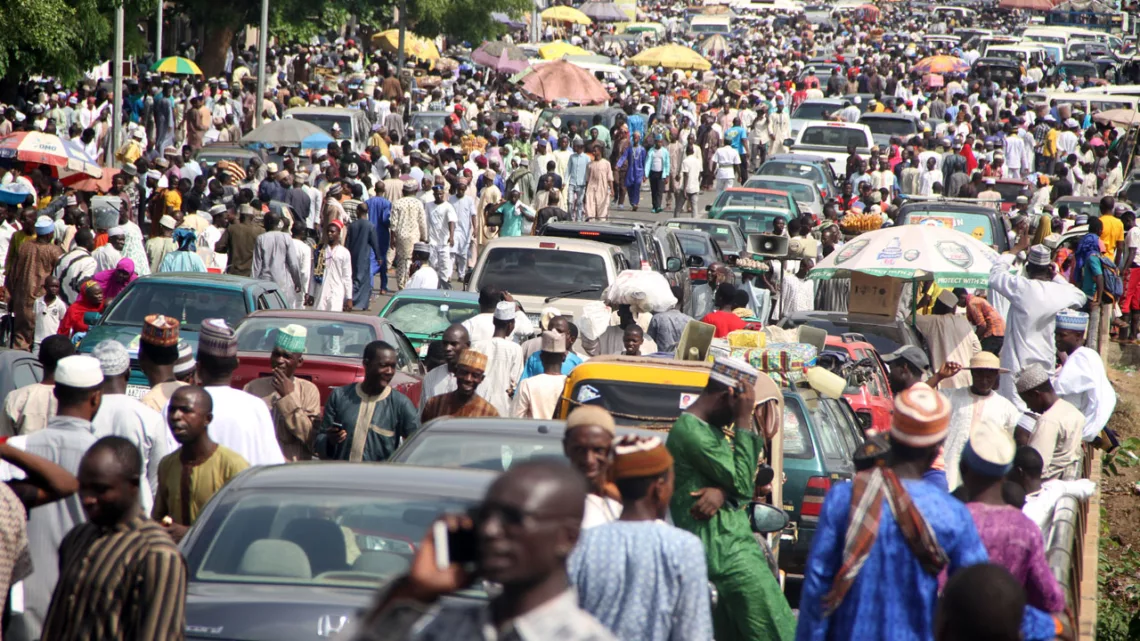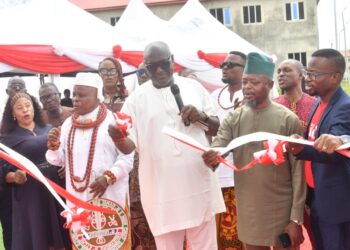In the Fourth Quarter of 2023, President Bola Tinubu told the business community at the Nigerian Economic Summit that Nigeria’s economy can grow to $1 trillion by 2026 and $3 trillion in 10 years. “We can do it with double digit, inclusive, sustainable and competitive growth,” he said.
Not many economists doubt Nigeria’s potential to grow its economy to $1 trillion. For example, PriceWaterhouseCooper (PWC) believes Nigeria is underperforming.
PwC estimates that Nigeria holds at least $300 billion or as much as $900 billion worth of dead capital in residential real estate and agricultural land alone. The firm said the high value real estate market segment holds between $230 billion and $750 billion of value, while the middle market carries between $60 billion and $170 billion in value.
However, economists who spoke with NATIONAL ECONOMY are of the opinion that aiming at a double digit and sustainable growth requires strategy, which, in turn, requires accurate census in order to direct investments at the right target.
The World Bank has said one of Nigeria’s biggest assets is its population. However, the very foundation of Nigeria’s greatness—its people—remains shrouded in uncertainty. The lack of an accurate and reliable census is a significant impediment to Nigeria’s development, affecting planning, resource allocation, and policy implementation.
An accurate census is the bedrock of effective governance. It provides critical data that informs government policies and decisions. In Nigeria, the last credible census was conducted in 2006, and the subsequent counts have been marred by controversies and inaccuracies. “Without current and reliable demographic data, the government operates in a vacuum, unable to make informed decisions about where and how to allocate resources. This leads to inefficiencies and misallocation, exacerbating existing inequalities and hampering development efforts,” noted a lecturer at Auchi Polytechnic, Zakari Mohammed.
The Chief Executive of AntHill Concepts Limited, and Member of the Board of Economists, NATIONAL ECONOMY, Dr. Emeka Okengwu, said in achieving a $1 trillion economy there should be three considerations namely, the intention, the plan, and the instruments to grow the economy. He stated that Nigeria has the instruments vis-a-vis the human and natural resources to achieve that.
He caveated that reliable and cogent data are critical to achieving that goal, but there must be a proper plan of execution.
The president, Independent Shareholders’ Association of Nigeria (ISAN), Moses Igbrude, said the lack of accurate population data affects Nigeria’s ability to attract foreign investment. He said investors rely on demographic data to make decisions about market potential, workforce availability, and consumer demand. “Inaccurate data can deter investment or lead to misinformed business strategies, ultimately affecting economic growth and development,” he noted.
Also speaking, a development economist at Adeleke University, Professor Tayo Bello, said there is the need for accurate census for the government to meet good developmental goals, but cautioned that such information as national census has been historically flawed with politics. “We cannot say confidently that we have been able to conduct any accurate census exercise since 1963,” said Bello.
He noted that it was census figures that informed the creation of local government areas in Nigeria in the past, especially during the military era.
Bello further said infrastructure development is severely hampered by the absence of accurate population data. “Effective urban planning, transportation networks, and utility services depend on knowing how many people live in an area and their growth trends. In cities like Lagos and Abuja, where rapid urbanisation is a constant, the inability to accurately track population growth leads to chaotic urban sprawl, traffic congestion, inadequate housing, and overstretched public services. Rural areas, on the other hand, may be neglected due to perceived lower population figures, perpetuating underdevelopment and poverty,” he said.
Also, a financial economist at Cashlinks, Nelson Azosiwe, stated that education, healthcare, and infrastructure are sectors that acutely feel the impact of census deficiency. “For instance, in education, accurate population data is essential for planning the number of schools, teachers, and learning materials required in different regions. Without this information, some areas suffer from overcrowded classrooms and inadequate facilities, while others have underutilised resources.
“Similarly, in healthcare, knowing the precise number of people in each area, along with their age distribution and health needs, is crucial for establishing hospitals, clinics, and health programmes. The lack of accurate data leads to imbalances, with some communities experiencing severe shortages in healthcare services while others might be oversupplied.
“Economic planning and development also suffer significantly. Accurate demographic data are vital for economic forecasting, labour market analysis, and the formulation of economic policies. Without reliable data, policies may be based on outdated or inaccurate assumptions, leading to suboptimal outcomes. For example, unemployment statistics, critical for labour market policies, are often inaccurate due to the lack of up-to-date population data, resulting in ineffective job creation strategies and social welfare programs,” he said.
Professor Tayo Bello, on the other hand, cautioned that conducting a comprehensive and accurate census in Nigeria faces numerous challenges, including logistical difficulties, funding constraints, and political interference. “However, these challenges are not insurmountable. The government must prioritise the census as a critical national project, ensuring adequate funding, transparency, and the use of modern technology to enhance accuracy.
“The lack of an accurate census is a fundamental barrier to Nigeria’s development. It affects every aspect of governance and socio-economic planning, leading to inefficiencies, inequalities, and missed opportunities. An accurate and reliable census is not just a statistical exercise; it is a cornerstone of effective governance and sustainable development. As Nigeria aspires to fulfill its potential as Africa’s giant, it must first know the true strength of its greatest asset—its people,” he said.





